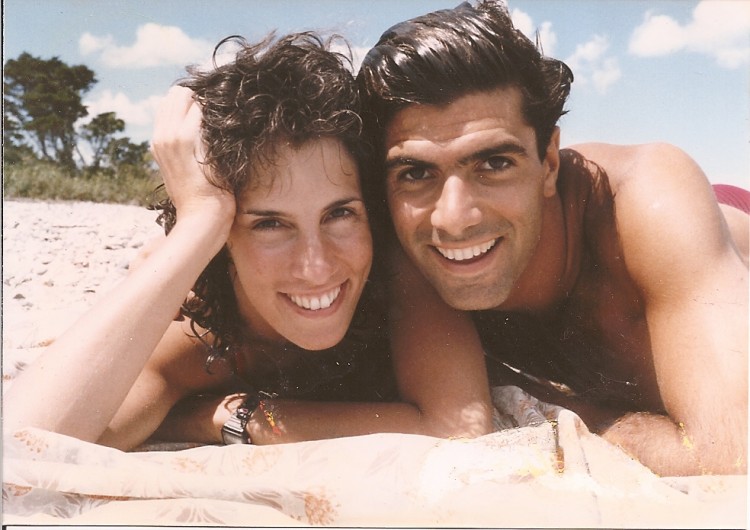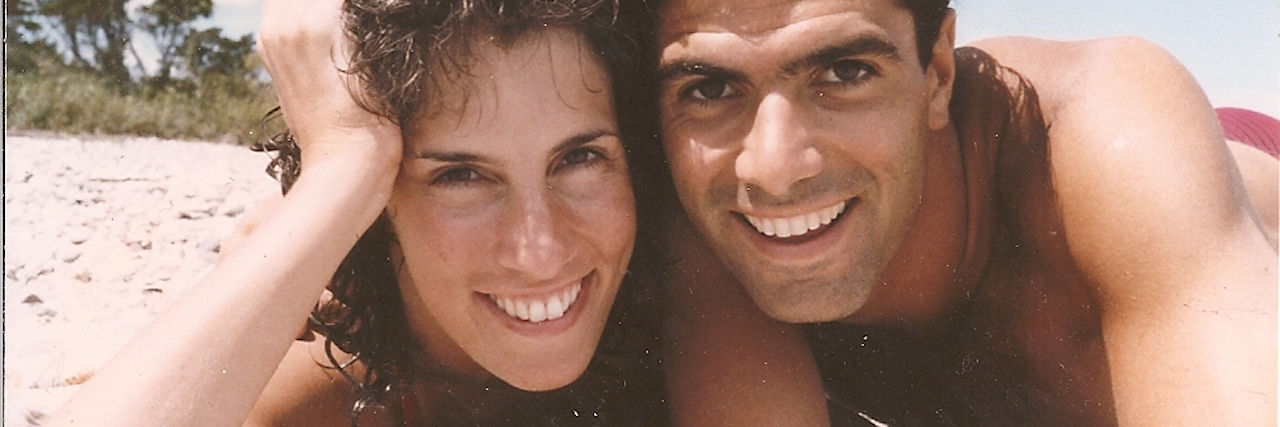11 Lessons I've Learned About Grief Since Losing My Soulmate to Suicide
March 15, 2015 was the day I lost my life partner and soulmate to suicide. To quote Michelle Steinke, “All other bad days before and after have been defined by that moment.”
“Beware the Ides of March” was the soothsayer’s message to Julius Caesar, warning of his death. According to Wikipedia, some have said the death of Caesar made the Ides of March a turning point in Roman history, as one of the events that marked the transition from the historical period known as the Roman Republic to the Roman Empire.
The death of Steve has surely marked a transition point in my life, from over 33 years of having a loving and fun-filled relationship to a life of loneliness.
As I reflect on this sad one-year anniversary of Steve’s death, I have observed the following and have come to some conclusions:
1. People I thought were friends were not there for me during the lowest time in my life. This could be because they were really never a friend in the first place or they were so caught up in their own grief, they cannot bear to talk to me, as I am a reminder that Steve is no longer here. The silence of these “friends” is deafening.
2. People that I least expected to reached out to me and supported me in my time of grief. These were people I hadn’t spoken to or seen in quite some time or people who had known Steve but didn’t know me, yet they reached out to me with such compassion. I was always touched and amazed by the kindness of complete strangers when I would have a meltdown in a public place.
3. It is OK to cry in public. Crying is part of the human condition, and to this day, I still will break down in tears over a simple reminder of Steve. There is no rhyme or reason as to what that might be. It could be seeing a car like his or hearing a favorite song of ours. Hearing a special song one day may tear me apart, yet on another day, hearing that same song will make me smile at the memory.
4. Intellectually, I understand one needs to remain positive and have gratitude for things to change for the better, however, putting that into practice is so difficult, harder than anything I have had to do in my life. I try to do all the “right” things: exercise, yoga, therapy, group therapy, socialize, volunteer work etc., and I will continue to forge ahead in my new life without Steve. But, when one is so depressed it is easier said than done. I remember thinking how could Steve find it so difficult to exercise for only 20 minutes when he had been such an incredible athlete, once so committed to his training. Although he suffered from clinical depression and I am suffering from situational depression, I now understand how hard it was for him to help himself. Exercise has always been a focal point in my life, whether it was dance, tennis, lifting weights, cycling or race-walking. Yet, now it is exhausting for me to do the simplest exercise and I must force myself to do it.
5. Bringing food to people who are grieving is so important. I never understood why this custom was so essential until I was the recipient. If it wasn’t for my friends bringing me cooked food, I probably would have wasted away to nothing. I didn’t and still have no desire to cook, and I eat to live when I used to live to eat.
6. Most people are clueless on how to deal with someone who has suffered an incredible loss, let alone a loss to suicide. Showing compassion and even just saying “I’m sorry” or “How are you doing today” or just giving a hug with no words is appropriate.
7. No two grieving processes are alike. I lost both my parents years ago and yes, I grieved and cried. However, my grief over the loss of my mom and dad pales in comparison to what I am experiencing with the loss of Steve.
8. One can never “move on” after such a devastating loss. I can only move through it. “Move on” is something I have learned to never say to someone who has lost a loved one.
9. I notice when some people ask me how I am doing and I tell them the truth. I usually never hear from them again. But I will not lie and say I am doing great, just so they can feel good about asking me.
10. I believe that not being Steve’s wife has made a huge difference in how some people have treated me. Society deems marriage to carry certain tangible and intangible benefits.
11. What I do know for a fact, and no one can ever dispute this, is that Steve and I were like two peas in a pod. We knew each other so well and could finish each other’s sentences. Our love was so strong, and no one can ever take that away from me. Yes, there were trials and tribulations for us in the last two years of his life that were exacerbated by his mental illness, but we never stopped loving each other. Unless someone has walked a mile in my shoes, they have no right to judge my actions or dispute the never-ending love Steve and I had for each other.
Mental health professionals and bereavement counselors have all told me my feelings and experiences are not unique to me. As it is with mental illness and suicide, no one likes to talk about death and grieving, and most people choose to remain silent. My hope is that someone who reads this blog can take away something to help a person in their life who may have suffered the loss of a loved one.
To this day, I am still grieving and trying my best to move through life without my beloved Steve. Sadness over what has transpired since Steve took his own life continually haunts me.
There are some bright spots in my life, and since I don’t want this blog to be a total pity party, I will end it on a positive note by expressing my eternal gratitude to my closest friends who have been by my side every step of the way and to those people who have shown me such compassion and kindness in my journey of grief. I am so blessed to have them in my life.
Although I may always be lonely, I will never be alone.

Follow this journey on Slipped Away.
If you or someone you know needs help, see our suicide prevention resources.
If you need support right now, call the Suicide Prevention Lifeline at 1-800-273-8255.

